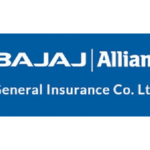Subtotal ₹0.00
Get Second Opinion from Top Surgeons! Book an Appointment »
Laparoscopic Hiatal Hernia Repair at MedEase
Hiatal hernias are a common condition that can cause acid reflux, heartburn, and significant discomfort if left untreated. At MedEase, we specialize in laparoscopic hiatal hernia repair, a minimally invasive surgical option that offers long-lasting relief with minimal downtime. This page provides a complete overview of the procedure, indications, benefits, recovery, and cost, helping you make an informed decision for your health.
Treatment Duration
30 Minutes
45 Minutes
Treatment Cost
70K
90K


A hiatal hernia occurs when the upper part of your stomach bulges through the diaphragm into the chest cavity via the esophageal hiatus. The diaphragm is a muscle that separates the chest from the abdomen and plays a key role in breathing.
Sliding Hiatal Hernia – Most common; stomach slides in and out of the chest through the hiatus.
Paraesophageal Hernia – Less common but more serious; part of the stomach pushes through the diaphragm beside the esophagus and stays there.
While small hernias may not cause symptoms, larger ones often lead to gastroesophageal reflux disease (GERD), chronic heartburn, and difficulty swallowing.
Common symptoms include:
Frequent heartburn or acid reflux
Regurgitation of food or sour liquid
Difficulty swallowing (dysphagia)
Chest or abdominal pain
Bloating after meals
Shortness of breath
Anemia from chronic bleeding (in severe cases)
If lifestyle changes or medication fail to manage these symptoms, hiatal hernia surgery may be required.
Laparoscopic hiatal hernia repair is a minimally invasive surgery where small incisions and a laparoscope (camera) are used to repair the hernia and reinforce the weakened area of the diaphragm. It is often combined with fundoplication, where the upper part of the stomach is wrapped around the lower esophagus to prevent acid reflux.
Reposition the stomach below the diaphragm
Tighten the esophageal hiatus
Reduce acid reflux and GERD symptoms
Prevent complications like strangulation or bleeding
Surgery is recommended if:
You have a large hernia
Symptoms persist despite medication
There are complications like ulcers or strangulation
You have chronic GERD or aspiration
There’s evidence of esophageal damage
Our specialists at MedEase conduct a thorough evaluation including endoscopy, barium swallow studies, and manometry tests to determine suitability for surgery.
Laparoscopic surgery offers significant benefits compared to traditional open surgery:
✅ Minimally Invasive – Smaller incisions, less pain
✅ Quick Recovery – Most patients return to normal activity in 7–10 days
✅ Reduced Hospital Stay – Usually 1–2 days
✅ Minimal Scarring – Cosmetic advantage
✅ Lower Infection Risk – Thanks to advanced laparoscopic techniques
✅ Better Symptom Control – Especially for reflux and regurgitation
Here’s what to expect with laparoscopic hiatal hernia repair surgery at MedEase:
Clinical evaluation and imaging tests (CT, endoscopy, manometry)
Medication review and pre-surgical instructions
Fasting for 6–8 hours before surgery
General anesthesia is administered.
4–5 small incisions are made in the abdomen.
A laparoscope is inserted to visualize the hernia.
The herniated stomach is gently pulled back into place.
The hiatus (opening in the diaphragm) is repaired and tightened with sutures.
Fundoplication may be performed (Nissen or Toupet technique).
Instruments are removed and the incisions closed with absorbable sutures.
The surgery usually takes 1.5 to 2 hours.
1–2 days in most cases
Pain management and gradual diet reintroduction
Liquid or soft diet
Avoid bending, lifting, or straining
Light walking encouraged
Gradual transition to normal diet
Resume light work after 7–10 days
Avoid vigorous physical activity
4 to 6 weeks
Post-surgical follow-up is crucial to monitor healing and manage any dietary or digestive changes.
Though generally safe, potential risks of laparoscopic hiatal hernia repair include:
Bleeding
Infection
Difficulty swallowing (temporary)
Recurrence of the hernia
Gas-bloat syndrome
Injury to surrounding organs (rare)
MedEase minimizes these risks with experienced surgeons and evidence-based practices.
The cost of hiatal hernia repair in India depends on:
Type of hernia and surgery required
Hospital infrastructure
Duration of stay
Surgeon’s expertise
Use of surgical mesh (if needed)
₹80,000 to ₹1,50,000
At MedEase, we offer:
Transparent pricing with no hidden charges
Cashless insurance & TPA support
EMI options for eligible patients
MedEase is India’s trusted surgical care provider known for its patient-centric approach, affordability, and excellence in minimally invasive procedures.
✅ Expert GI and Laparoscopic Surgeons
✅ NABH-Accredited Partner Hospitals
✅ Modern OT Infrastructure & Equipment
✅ End-to-End Care Coordination
✅ Free Pre and Post Surgery Consultations
✅ Flexible Financing & Insurance Support
We prioritize outcomes, comfort, and convenience every step of the way.
Don’t let acid reflux and hernia symptoms affect your daily life. Choose laparoscopic hiatal hernia repair at MedEase for expert care, advanced technology, and quick recovery.
📞 Call or WhatsApp: +91 96255 29133
📧 Email: info@medeasehealth.com
📅 Book Now: Schedule your appointment
Yes, in most cases, the repair is long-lasting. Recurrence is rare if post-op guidelines are followed.
Soft diet is started within 2–3 days, with a return to normal diet in 2–3 weeks.
Only small incision scars remain, which fade over time.
It is a procedure often done with hernia repair to wrap the stomach around the esophagus and prevent acid reflux.
While recurrence is uncommon, lifestyle changes post-surgery help prevent it—such as avoiding heavy lifting and maintaining a healthy weight.




